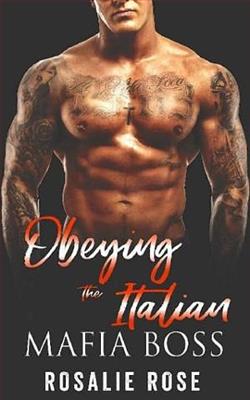Page 56 of These Summer Storms
“That’s my job,” Jack said.
“What a devoted employee,” she said, dryly.
“I owe him.”
And there it was. Jack was an acolyte. Just like the others on Franklin’s staff, in the world, the ones who went to the developers’ conferences, the ones who analyzed every statement her father made, every tossed-aside comment that could move markets. Franklin Storm didn’t just change the world, he convinced the world that, without him, it had no hope of ever changing.
“Why?”
“He…changed my life.”
“I’m sure he loved that you thought that.”
Everything about him tensed at the reply, as though he had a half dozen arguments. As though, if they weren’t on this boat, he’d take her to the nearest conference room and cue up a presentation replete with all the reasons he owed Franklin Storm.
“Soyouhave to sail,” she said, returning the conversation to smooth waters. “Why amIhere?”
“It’s been a while since I’ve been on the water. I thought maybe it was the same for you.”
It wasn’t an answer, but she hadn’t expected one. She tilted her head up to the enormous mainsail, gleaming cream in the sun, and answered him like they told each other the truth. “It has been.”
She didn’t tell him the whole truth, though. She didn’t tell him that the last time she’d sailed, she’d been here, on this water. On this boat. On this island.
In this family.
Silence for a while, and she was grateful for the mirrored sunglasses he wore, so she didn’t have to feel his intent gaze when he asked, “When was the last time?”
“I was on a pontoon boat a few years back.” He made a sound that indicated how he felt about pontoon boats. “They are very sturdy, you know. And skiffs. Yachts even. All safer than a sailboat. No one gets knocked off a pontoon boat by a twenty-foot boom.”
“Your father was never one to be swayed by security.”
“Yeah, well, considering he crashed a glider into a field three days ago, maybe he could have been a little more careful.”
It wasn’t kind, she knew. But somehow, this boat, which she’d been so sure would provide respite from the island, was even more constricting. She stood and made for the rear of the vessel. “I’m going to check the mizzen. It shouldn’t be so—”
Chaotic. Untethered.
She didn’t mean to look at him when she passed, but it was difficult not to. Even if he wasn’t the kind of man who demanded attention by simply existing, she couldn’t ignore that he was watching her. And then, to make matters worse, he said her name. Sturdy. Even. Like solid land. “Alice.”
What was she supposed to do? Not respond? It would have been rude. So she looked at him. Under duress.
“I’m sorry for your loss.” He’d said it before, to the whole family, when he’d laid out the instructions for the game. When no one had acknowledged it. She should probably acknowledge it now. Except she didn’t want to. She knew it made her obstinate, but what was there to say?
Thanks, but if you were really sorry, you wouldn’t be carrying out hisinsane final wishes.That was the kindest thing she could imagine saying. The worse one wasThanks, but if you were, why’d you fuck me in a seaside motel?
And then there was,Thanks for being sorry, but I’m not sure I am.
She settled on, “I’m sorry for yours.”
His jaw tightened. She shouldn’t have noticed. “Thank you.”
And then, as though the gratitude unlocked her, she offered, “The last time I was on this boat, I had an argument with my father.”
They were nearing the Jamestown Bridge, dozens of boats jockeying for position to pass through toward the mouth of the Bay, where sunlight gleamed in blinding reflection. “Your father was an easy man to argue with.”
“This one was a long time coming,” she said. He used the work of navigating the congestion to avoid looking at her. It was a move, she would later realize. A tactic to make her say more. A lifetime of media trainers felt a chill in the air when she did just that. “I’m guessing you know why we never met.”
He didn’t pretend not to understand. “You and I? I know what I’m supposed believe.”















